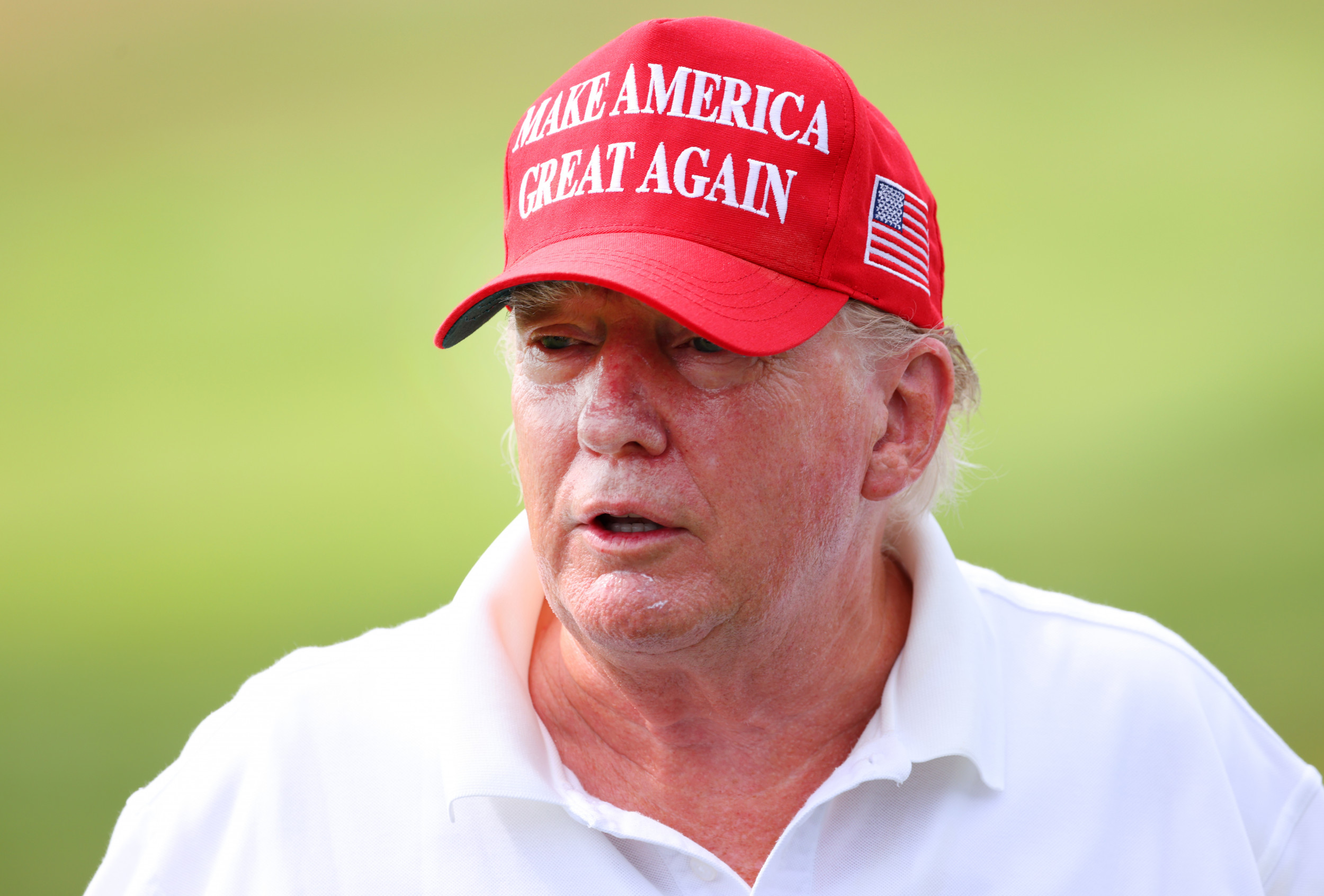A Closer Look At The Unfiltered Reality

The phrase "Trump without makeup" evokes curiosity about the unvarnished version of one of the most polarizing figures in modern politics. This article explores not only the physical appearance of Donald Trump when he steps away from the spotlight but also delves into the implications of public perception and the reality behind the media's portrayal of him. As we dissect this topic, we will consider how public figures often rely on cosmetic enhancements to maintain their image and how this relates to the authenticity of political personas.
In a world where image often trumps substance, the significance of authenticity cannot be overstated. Donald Trump, known for his distinctive hairstyle and unique style, has been a subject of fascination and scrutiny. This article will provide insights into his public image, the role of makeup in politics, and the broader cultural implications of how we perceive leaders based on their looks.
Join us as we unravel the layers of public perception, explore the reality of Trump's appearance without the enhancements, and discuss what this means for his legacy and the future of political imagery. With a comprehensive analysis, we aim to equip you with a deeper understanding of the complexities surrounding public figures and their representation.
Table of Contents
Trump's Biography
Born on June 14, 1946, in Queens, New York, Donald John Trump is a business magnate, television personality, and politician who served as the 45th President of the United States from January 20, 2017, to January 20, 2021. Before entering politics, Trump had a successful career in real estate and entertainment. He is known for his controversial statements and policies that have left a lasting impact on American society.
| Full Name | Donald John Trump |
|---|---|
| Birth Date | June 14, 1946 |
| Profession | Businessman, Politician, Television Personality |
| Presidency | January 20, 2017 - January 20, 2021 |
The Physical Appearance of Donald Trump
When examining Trump without makeup, one might notice several key features that define his appearance:
- Signature hairstyle, often described as a unique shade of blonde.
- Distinctive facial features, including a pronounced jawline.
- Skin tone that has been a subject of discussion and scrutiny.
- Body language and posture that convey confidence.
Without the enhancements that come with public appearances, Trump’s natural appearance offers a glimpse into the person behind the persona. This unfiltered view can demystify the image that many have of him, highlighting the contrast between reality and the curated public image.
The Role of Makeup in Politics
Makeup has long been a tool used by public figures to enhance their appearance. In the political arena, appearances can significantly impact voter perception. Here are some key points regarding the role of makeup in politics:
- Makeup can help convey professionalism and authority.
- It may influence public perception of competence and trustworthiness.
- Women in politics often face greater scrutiny regarding their appearances.
Gender Differences in Makeup Usage
Research indicates that female politicians often feel more pressure to conform to beauty standards than their male counterparts. This dynamic raises questions about gender equality and the expectations placed on women in leadership roles.
Public Perception and Media Representation
The media plays a crucial role in shaping public perception of political figures. Trump's portrayal in the media can often be polarizing:
- Positive coverage may focus on his achievements and policies.
- Negative coverage often highlights controversies and personal attacks.
Understanding how media representation affects public perception can provide valuable insights into the broader cultural narrative surrounding Trump and similar figures.
Cultural Implications of Appearance
Appearance plays a significant role in how leaders are perceived, impacting cultural norms and expectations. The following points highlight some of the cultural implications:
- Public figures are often held to higher standards regarding their appearance.
- Societal norms influence how leaders present themselves.
- Authenticity versus image can create a divide in public trust.
The Impact on Future Political Figures
As society evolves, so too do the standards by which political figures are judged. The relationship between appearance and authenticity will continue to shape public discourse.
Expert Opinions on Image and Authenticity
Experts in psychology and media studies provide insight into the importance of image versus authenticity in politics. Some key takeaways include:
- Authenticity can lead to greater trust among constituents.
- Overemphasis on image may result in a disconnect with the electorate.
Statistics on Public Figures and Makeup
Studies indicate that a significant percentage of voters consider a candidate's appearance when making electoral decisions:
- Approximately 70% of voters believe a candidate's appearance affects their credibility.
- Women in politics are often judged more harshly based on their looks.
Such statistics underscore the importance of understanding the interplay between image and public perception.
Conclusion
In conclusion, understanding "Trump without makeup" goes beyond just physical appearance; it encompasses the broader implications of authenticity, media representation, and cultural expectations. As we navigate the complexities of public perception, it is essential to consider how these factors influence our understanding of political figures.
We invite you to share your thoughts in the comments section below. How do you perceive the relationship between image and authenticity in politics? Don’t forget to share this article with others who might find it intriguing!
Thank you for reading! We hope you'll return for more insightful discussions and analyses on contemporary issues.
ncG1vNJzZmivp6x%2Fb8DAnqqaZpOkum%2Bu0Widmqqena6uhY6tqa6loGLEqsDHqKytZZ2WuKbBz2aYZpucpMCmvoylpqijXZbBbsDHnmSuppaeubWx0Z6bZqqVlrmqwNhnn62lnA%3D%3D